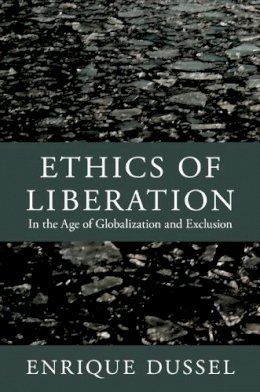
Ethics of Liberation: In the Age of Globalization and Exclusion
Enrique Dussel
Throughout his career, Dussel has sought to open a space for articulating new possibilities for humanity out of, and in light of, the suffering, dignity, and creative drive of those who have been excluded from Western Modernity and neoliberal rationalism. Grounded in engagement with the oppressed, his thinking has figured prominently in philosophy, political theory, and liberation movements around the world.
In Ethics of Liberation, Dussel provides a comprehensive world history of ethics, demonstrating that our most fundamental moral and ethical traditions did not emerge in ancient Greece and develop through modern European and North American thought. The obscured and ignored origins of Modernity lie outside the Western tradition. Ethics of Liberation is a monumental rethinking of the history, origins, and aims of ethics. It is a critical reorientation of ethical theory.
Product Details
About Enrique Dussel
Reviews for Ethics of Liberation: In the Age of Globalization and Exclusion
Alex Sager
Marx & Philosophy Review of Books
“. . . the most compelling articulation we have of the map of power and powerlessness in which we live our lives. It is sweepingly comprehensive, a tsunami of thought. Dussel, a philosophy professor in Mexico City, ducks none of the major issues and none of the intellectual figures of the West as he develops his thought about liberation.”
Walter Brueggemann
Christian Century
"The importance of this work lies, on the one hand, in how it demonstrates the force of philosophical thought that reproduces itself in the periphery of the world-system and, on the other hand, in how it poses theoretical, ethical, and political questions radically important for humanity in this third millennium."
Luis Martinez Andrade
Hispanic American Historical Review
“[A] masterful translation of an important work. . . . Whether one agrees with Dussel’s position or not, the ideas presented in Ethics of Liberation are important, as they propose an alternative model to neoliberalism. The editor and the translators of the text have done a magisterial job of bringing this seminal work by a major world philosopher to the attention of an English-language reading public.”
Rolando Pérez
College Literature
“[A] tour de force both breathtaking and conceptually rigorous.”
Mark Lewis Taylor
Radical Philosophy Review
